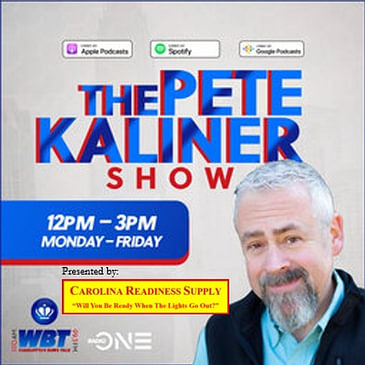This episode is presented by Carolina Readiness Supply – Today marks the 80th anniversary of the Normandy invasion. Time is running out to thank the men who stormed the beaches and liberated a continent.
Subscribe to the podcast at: https://ThePeteKalinerShow.com/
All the links to Pete's Prep are free: https://patreon.com/petekalinershow
Get exclusive content here!: https://thepetekalinershow.com/
See omnystudio.com/listener for privacy information.

